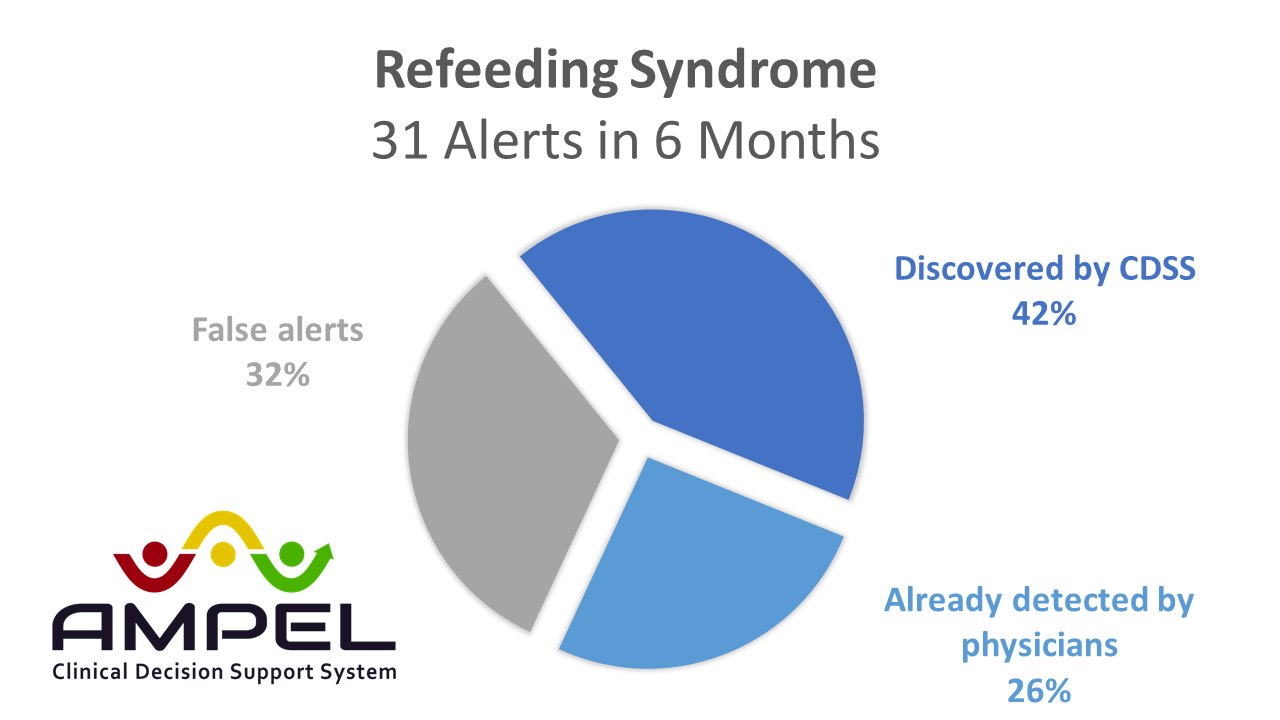Status: Active implementation within routine care
Malnutrition poses many dangers to the health of those affected. One of them is the so-called refeeding syndrome. It occurs when malnourished individuals, after prolonged periods of little or no food intake, suddenly receive nutrition again, for example, after hospital admission. Often, the associated symptoms go unnoticed, which can, in the most severe cases, lead to death. A low or lack of calorie intake is a quite common accompanying condition of various illnesses. According to the 2019 Nutrition Report by the German Society for Nutrition (DGE), approximately
20 percent of patients in hospitals are affected by severe malnutrition.
 Symptoms often include unclear issues with circulation and the nervous system, resulting from shifts in the body's mineral and fluid balance.
A survey of German healthcare professionals found that only 14 percent can identify and treat this condition effectively. Yet, timely action is essential, as neglecting it can lead to fatal consequences. To prevent this, it's crucial to reintroduce nutrition in a calorie-reduced form and provide targeted supplementation of specific electrolytes and vitamins.
Symptoms often include unclear issues with circulation and the nervous system, resulting from shifts in the body's mineral and fluid balance.
A survey of German healthcare professionals found that only 14 percent can identify and treat this condition effectively. Yet, timely action is essential, as neglecting it can lead to fatal consequences. To prevent this, it's crucial to reintroduce nutrition in a calorie-reduced form and provide targeted supplementation of specific electrolytes and vitamins.
With this background, the AMPEL team collaborated with the
Division of Endocrinology to create and study the RFS model at the University Hospital Leipzig. The prospective study yielded impressive results:
the RFS model was correct in 2/3 of cases. Additionally, most identified cases offered genuine value, as they would have been missed without the AMPEL.

The RFS model identifies an imbalance in the laboratory parameters of phosphate, magnesium, and potassium, and assesses the likelihood of other causes besides refeeding syndrome. This involves automated calculations using additional lab data and the evaluation of general clinical data from the hospital information system. The automated AMPEL promptly notifies the
specialized nutrition team, which visits patients at their bedside and initiates further steps if necessary. This process allows for the detection of previously undiscovered patients and halts the progression of refeeding syndrome.
Following the successful prospective study, the
University Hospital Leipzig decided to integrate the AMPEL model into routine care, aiming to enhance the long-term patient safety of malnourished individuals. The software design of AMPEL for both research and routine care allows for this transition with just "one click."
> Calcium model
